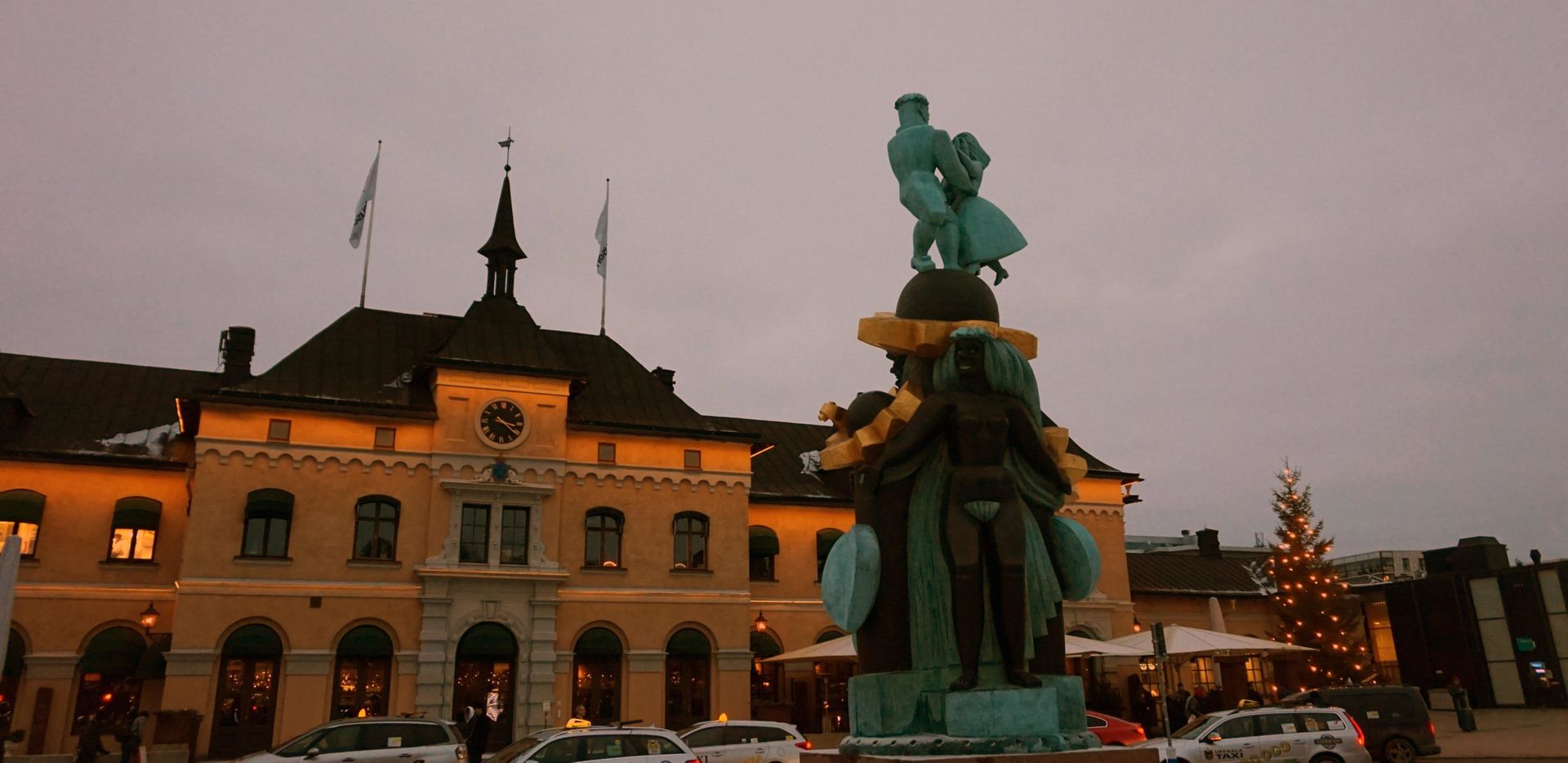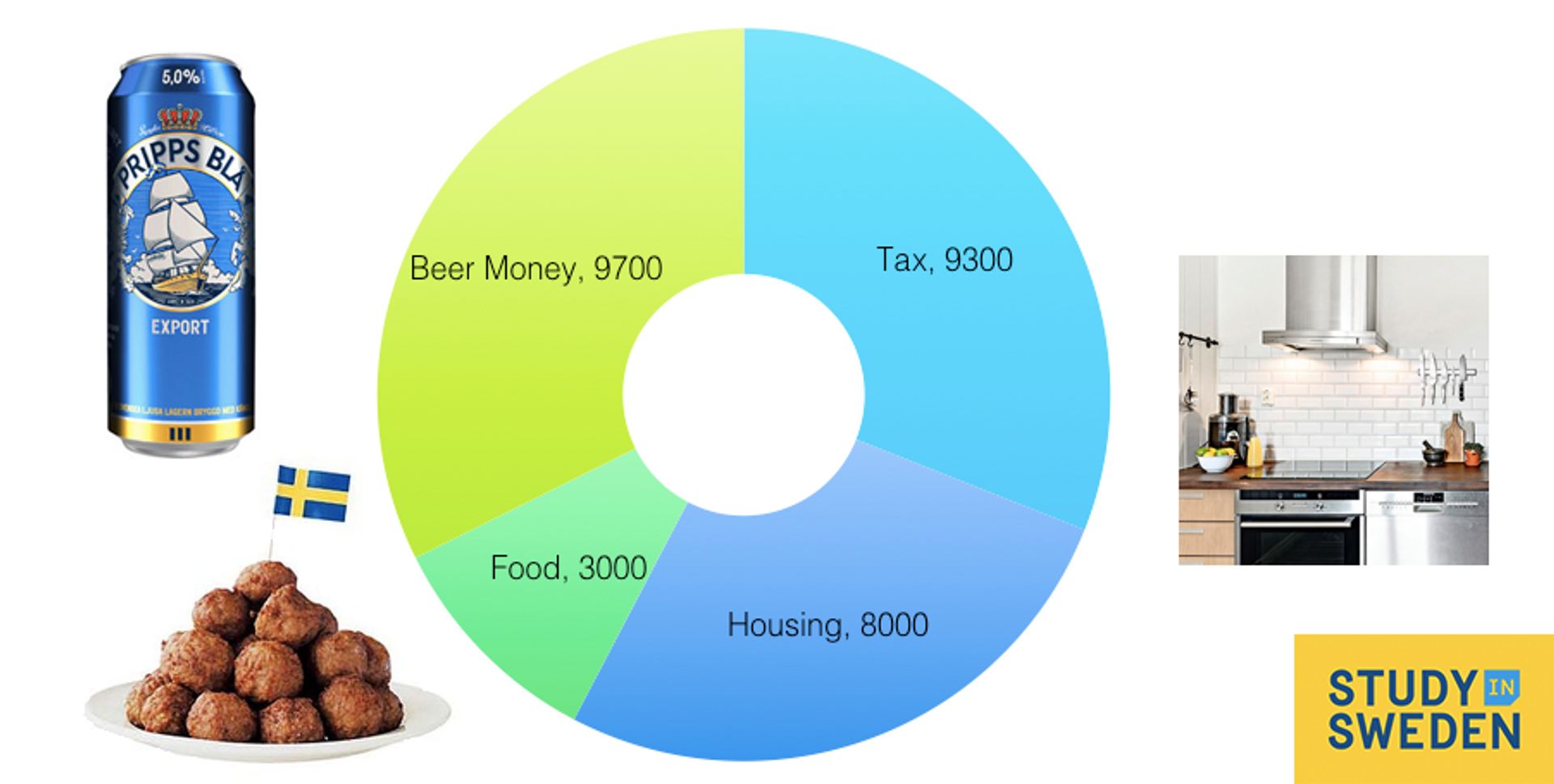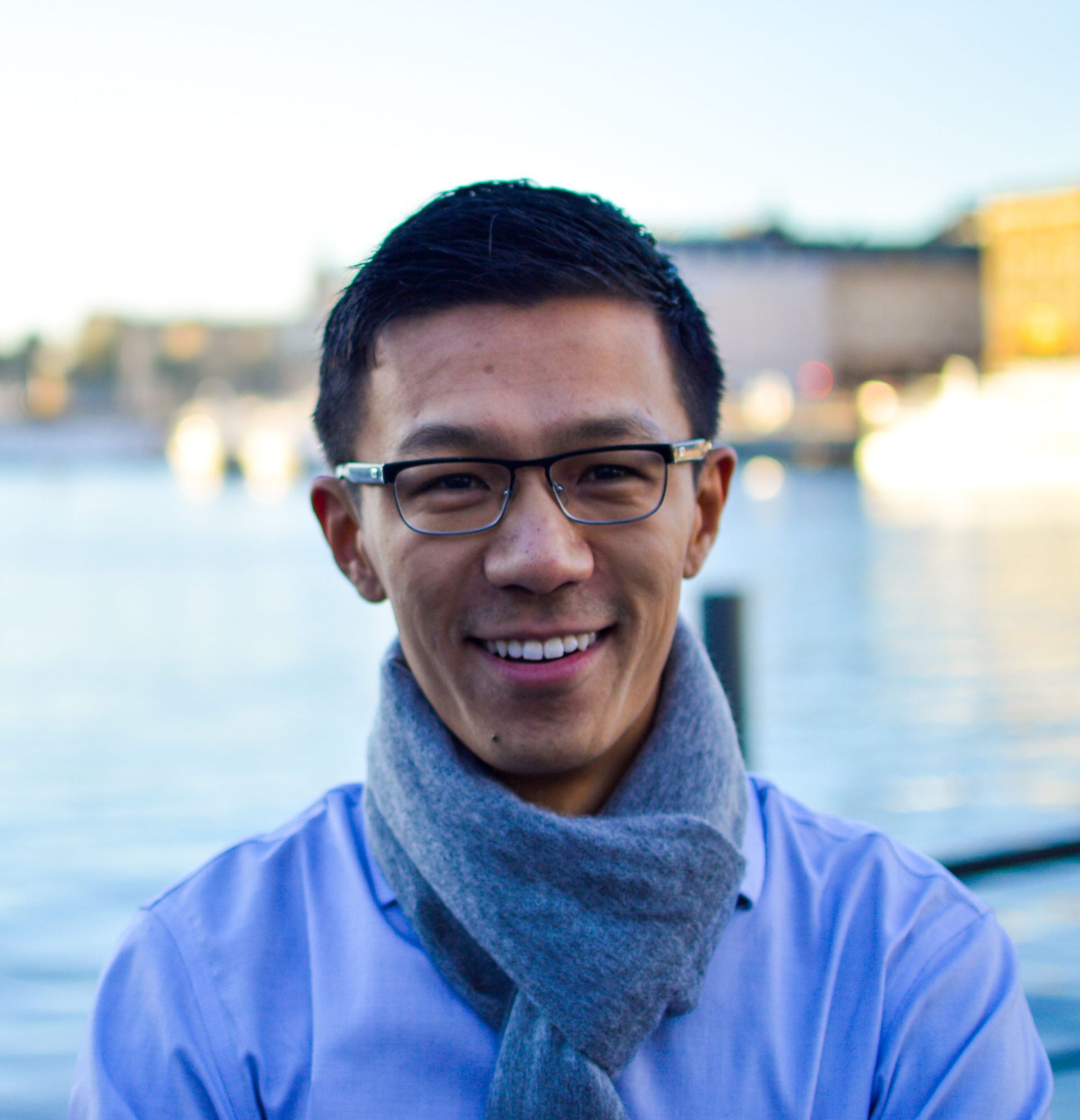
Written by Yen
28 May 2019
It’s almost the end of the school year. Time flies. I have studied my master’s degree in Digital Media and Society at Uppsala University for nearly a year, finished most of the compulsory courses in the program. I guess now I can reveal parts of the secret – How is it like to be a social science student at a Swedish University?
What is right, and what is not?
You will have to read a lot, but trust me, there are reasons for it. As social science students, we are required to read different theories about one topic. Some of them are even contrasting. You may get frustrated and started asking yourself why I have to read that much, just like I feel at the beginning of every course. That’s how the Swedish education works, I believe. Learning about different opinions, we will have more freedom to choose what to follow.
If there is one thing I can be sure after a year studying in social science, that will be there is nothing wholly right and completely wrong. If you’re looking for black-and-white certainties, don’t go for social science. Be prepared for a lot of grey areas, where your empirical research ends up not fitting 100% to the theory you learned. Don’t panic! You will find the beauty in that grey areas where nobody but you, as a social science student, will be accountable for this new knowledge.
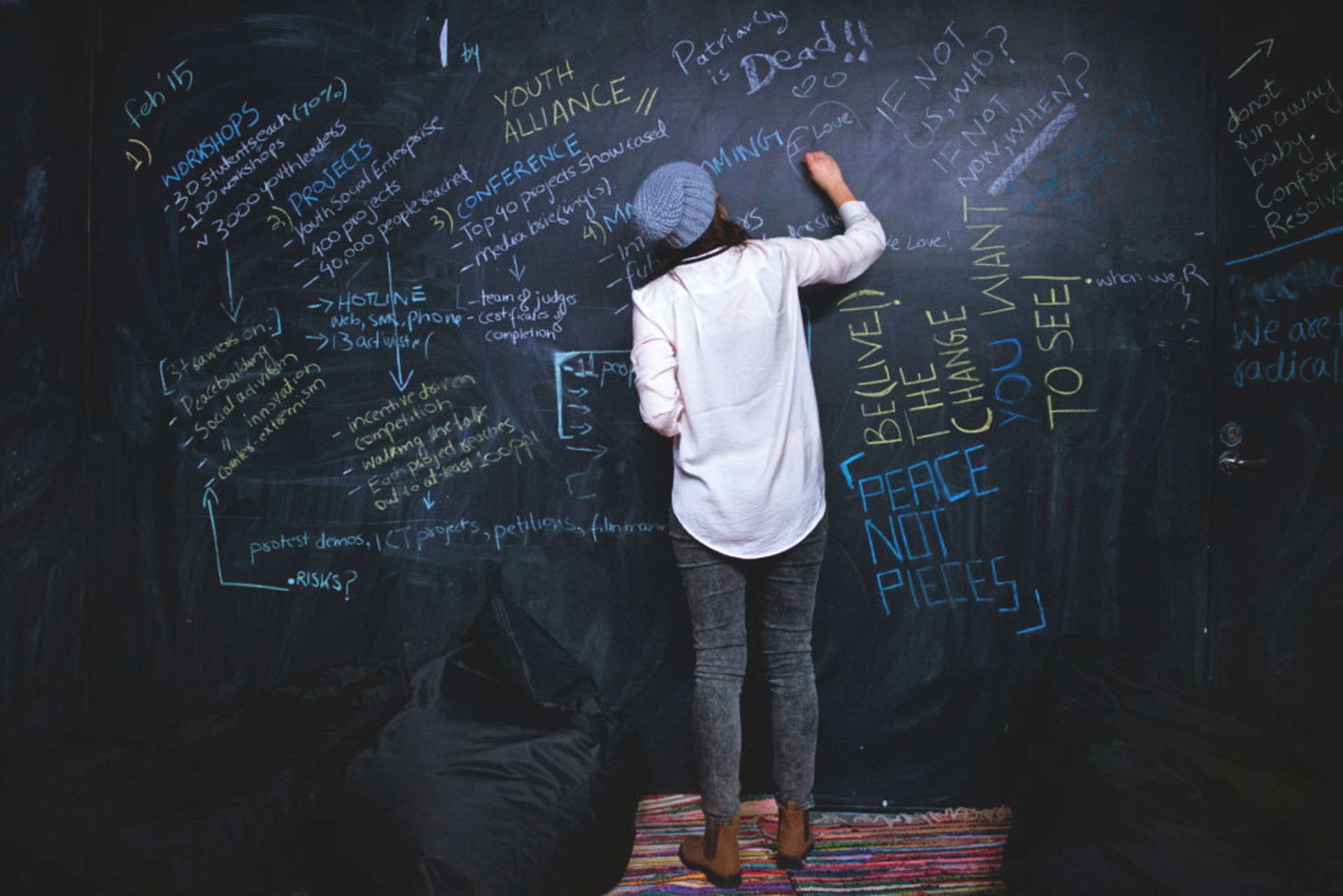
Sweden is famous for its creativity and innovative, also for freedom and democracy in society. Inside the Swedish classroom, we have the freedom to choose the topic of our research. The supervisors are always there answering when we need to ask or giving orientations if we are completely lost (sometimes it does happen!). We are encouraged to challenge their ideas, at the same time, having our own critical viewpoints regardless of how famous the scholar is!
The sky is the limit!
It feels rare, at least for me, to be able to do research on every mundane thing that happens around me. From the beginning, I saw myself crying out loud over pages and pages of dry theory. Up to now, when I get used to it, I see in these theories some chances that I can do research on things that are interesting, to make sense of it using what I learn. Some famous social scientists may already set foot on new land, but it doesn’t mean the knowledge has to stop there. A few years later, technologies change, people change, and society evolves.

One piece of news you find on social media today can be a good idea to start my research assignment. One routine you do on the Internet can imply a social phenomenon. On my very first big assignment of the master program, I decided to do research on something I was always curious about, but at the same time, it was something considered a taboo in where I come from. Using theories I have learnt, which most of them come from Western scholars, I brought my research back to my home country context – a small South East Asian country with a totally different politic regime. I sought to look at a typical concept in European countries such as Democracy being perceived in a totally different way in another part of the world.

On the day presenting the final project, I was there listening to my fellow master students presenting how environmental strikes happened in European countries, but also speaking up my own research on how an environmental strike looks like in a completely different part of the world. We saw the similarities, we also acknowledged the differences. Isn’t it the crystal beauty of studying social science in a multinational class?
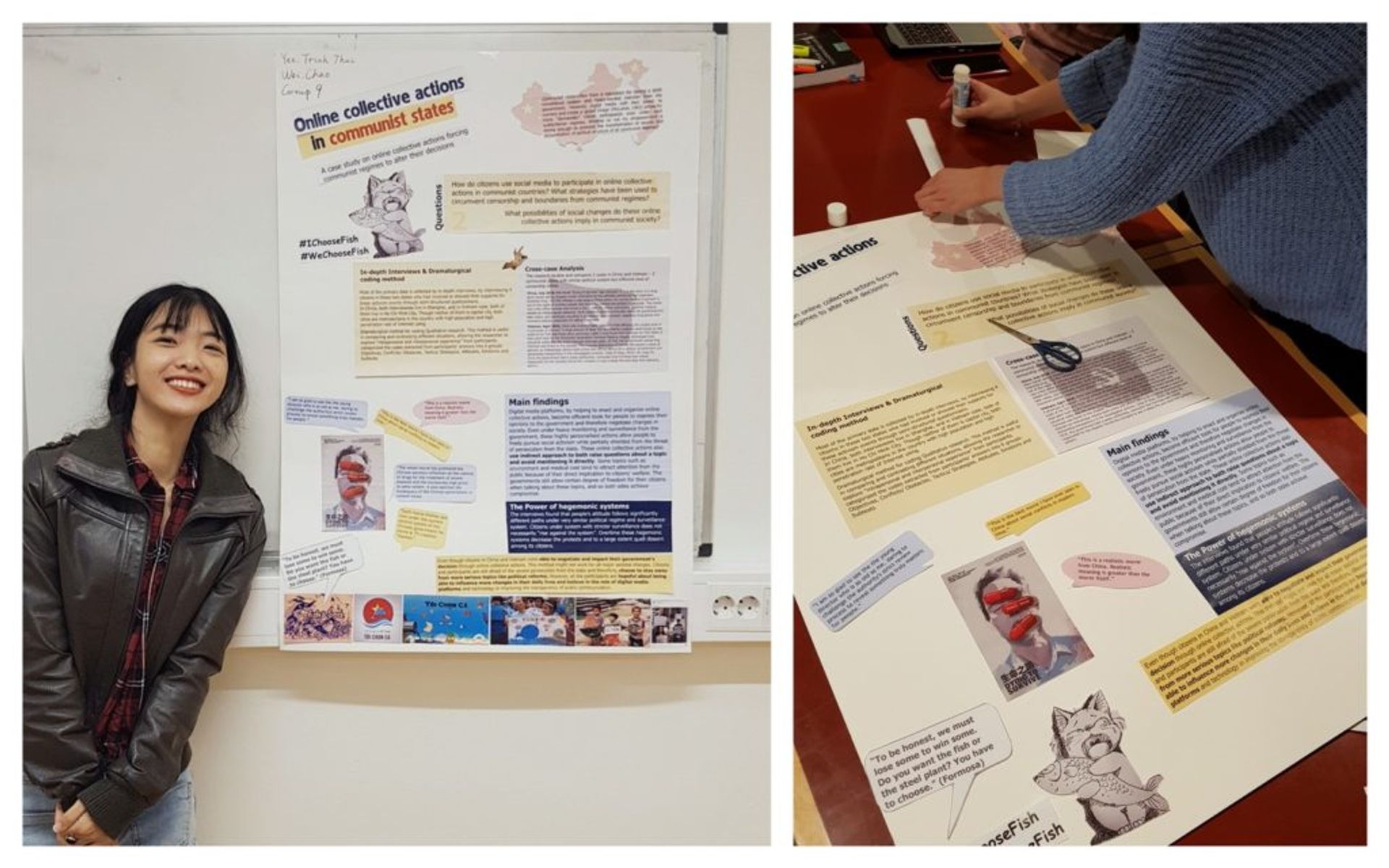
A program that teaches me about Courage
Being a social science student in Sweden, you will also be motivated by your lecturers, your professors – People who spend years living and working with the subjects they are researching, who are ready to travel to the poorest parts of the world, to the most alien community, to live far from their homelands for the sake of science.
Being a social science student, you will also have to pluck up your courage to engage with the subject of your research, even that they are total strangers, even that the topic may be a taboo. I have shared one of the best experiences with Swedes thanks to an attempt to finish my assignment in a previous blog post.
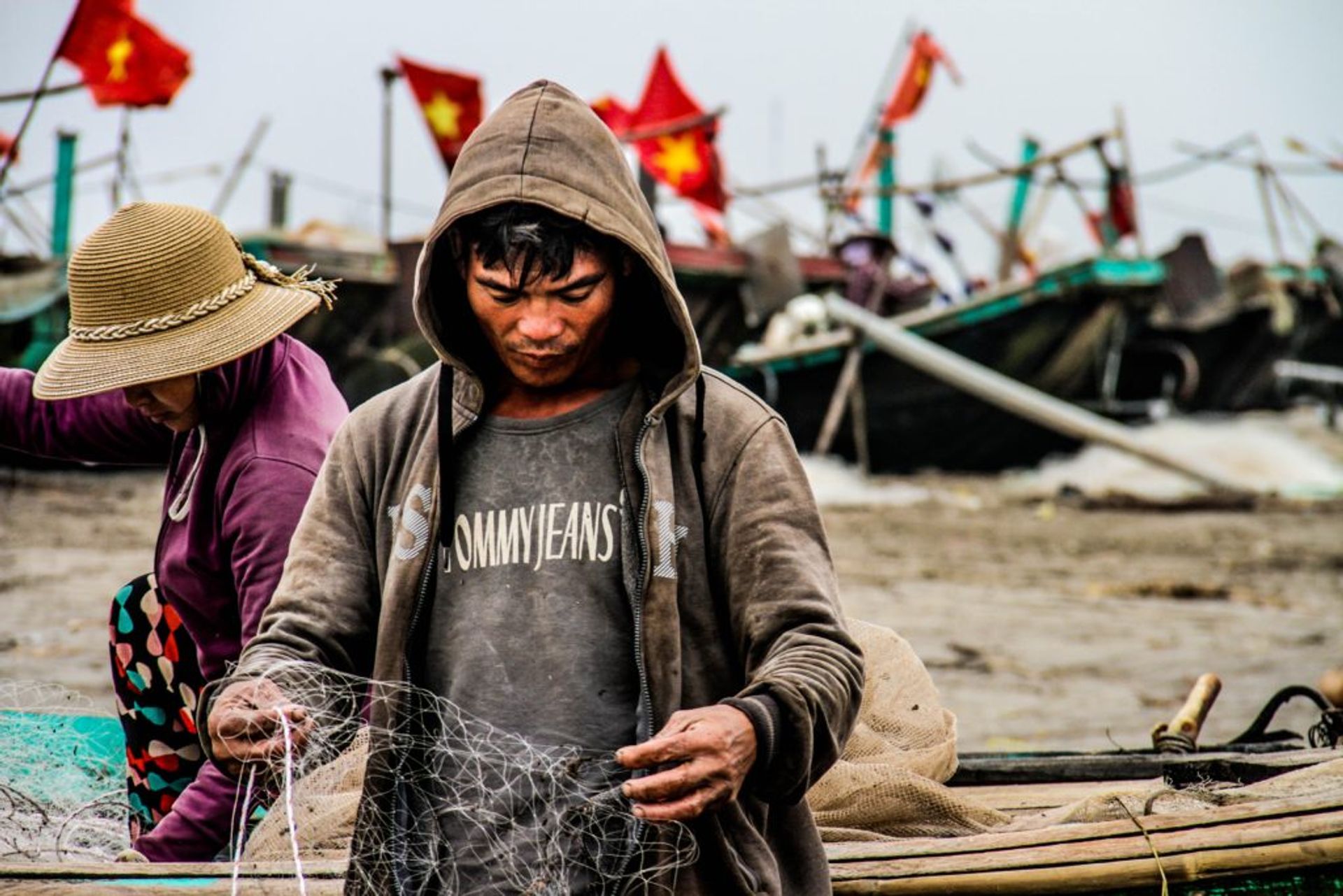
In my last assignment, I decided to get out of my own comfort zone researching about the Flat Earth community – a movement that not only gains a lot of media coverage recently but also is a very non-scientific based topic that is so easily labelled as total nonsense. Against my prediction, our lecturer gave a lot of encouragements for us to continue the research, trusting that we would bring out something interesting out of it.
One final thought
There is one thing I remember most about Swedish style, managing expectations (Swedish word: förväntningar) is of great importance. Therefore, I will also provide some other sides to my social science program – Digital Media & Society.
This program aims at providing critical perspectives about a social phenomenon, which you will find not that much connected to the business world outside. You will also not find fancy business cases and challenges to solve as you may find in business schools, which will somehow prepare for your future once you leave school. You won’t be equipped through lectures and classes with technical skills that are desired by most of the companies on the market when it comes to Digital Media. Either you learn these skills by yourself or through other elective courses, you may not find them very often in a master program in social science.

I’m proud of myself that after a year in the program, I look at digital media platforms in a totally different way. I may or may not use this knowledge in my future career, but I know that what I learned this year will forever stay helpful: a critical way of thinking, a desire for making sense of the everydayness and the best of all, the courage to never stop exploring new things in the world.

